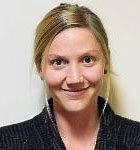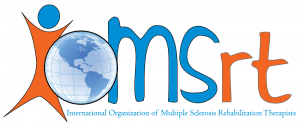
Sarah Donkers, PT, PhD
Dr. Sarah Donkers (PT, PhD) worked clinically as a physiotherapist specialized in neurology. It was her clinical work that led her to research. She has trained and worked clinically in both Canada and Australia. Sarah is currently an Associate Professor in the College of Medicine, University of Saskatchewan. The focus of her research is to better understand how we can optimize functional recovery through neurorehabilitation and how we can get such approaches into routine care - bridging neurorehabilitation interventional research with implementation science and health services. In addition to her clinical experience, Dr. Donkers has conducted numerous studies investigating interventions to promote improvements in functional mobility, physical activity levels, symptom management, and neurorecovery for people living with MS. She is dedicated to improving the access to and quality of neurorehabilitation services.
I am honoured to start in the role of co-chair for the IOMSRT. I’m looking forward to working with and learning from this group of healthcare providers dedicated to the care and support of individuals living with MS. As we all know, MS presents unique challenges and the work we do is crucial in improving quality of life and advancing care for all people with MS.
I think the role of rehabilitation in MS has never been more important. Our understanding of the pathophysiology of MS has advanced with newer high efficacy disease-modifying-therapies helping to address the autoimmune attacks and inflammatory responses. However, people with MS are still progressively losing functional abilities and experiencing debilitating symptoms that affect quality of life. Rehabilitation plays a pivotal role in counteracting neurodegenerative processes and promoting neuronal repair and neuroplasticity.
My hope is to improve access to evidence-based care and to continue to advance our understanding of how to optimize neurorecovery and support living well despite MS. I look forward to engaging with our IOMSRT and growing our international community as we continue to make meaningful strides in MS rehab.
I hope as a community we can continue to learn from each other, exchange ideas, share resources, help implement best-practice, support new clinicians in learning more about MS and mentor the next generation so we can continue to have a strong workforce of rehab providers dedicated to MS.
Excited to be a part of this community, I look forward to the important work ahead.
Thank you!
Sarah

